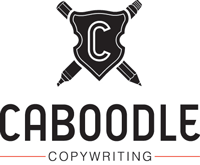Whenever we’re taking our first brief with new clients – whether we’re talking about copywriting, messaging or their marketing and branding in general – the topic of mission and vision statements invariably comes up. And often, particularly if the client has a small or start-up business, they ask, “Do we really need them?”
The answer, of course, is no, you don’t need a vision statement. The world will keep turning if you don’t take a timeout to create a compelling mission or inspiring vision. Your business won’t disappear in a puff of smoke.
But you’re asking the wrong question. Here’s what you should be asking instead.
“Do we want to be successful?”
If the answer’s yes, then a mission or vision statement will help. How can you create a successful business strategy without knowing what success looks or feels like, whether it’s a short-term goal or a big audacious dream, like Tesla’s mission:
Tesla’s mission: To accelerate the world’s transition to sustainable energy.
“Do we want to recruit and motivate the best people?”
You do? Then a vision or mission statement is a good idea. How do you expect to attract and motivate the best talent if you can’t give them a clear idea of what you do and why you do it. Steve Jobs understood this, which is why he invested in a visionary mission statement.
Steve Jobs’ mission for Apple: To make a contribution to the world by making tools for the mind that advance humankind.
“Do we want customers to be excited about what we do?”
Of course you do. You want to build a community, a groundswell, a movement. You want people to buy into your brand and believe in what you’re doing. That’s why Uber took the time to craft a compelling mission:
Uber’s mission: Transportation as reliable as running water, everywhere, for everyone.
Virgin is another good example of a progressive business that created an inspirational mission:
Virgin Atlantic’s mission: To embrace the human spirit and let it fly.
“Do we want to stay focused and make the right decisions, even when things get messy?”
Again, a bit of a no-brainer. And again, if you answered ‘yes’, then you probably need a mission or vision. Only by having a single-minded mission or vision can you both empower your people and stay on track, Google-style.
Google’s mission: To organize the world’s information and make it universally accessible and useful.
But let’s not get carried away
Mission and vision statements won’t make or break your success. In fact, a badly designed mission or vision statement – something that isn’t clear and inspirational – can be detrimental.
On the other hand, a carefully calibrated vision or mission statement sets the tone for your brand and messaging, helping you break away from the pack, particularly as you grow.
If you’d like to find out more about crafting a vision or mission statement that’s both useful and usable, and that adds value to your brand, we can help. Read all about our message design expertise or get in touch.
Paul Leonard is an award-winning copywriter and creative director. He has plied his creative craft in the UK and Australia for more years than he cares to mention, working with clients of all shapes and sizes across an equally diverse range of industries. When he’s not building brands and crafting copy, concepts and campaigns, he enjoys running, drinking iced coffee and writing profiles about himself in the third person.
